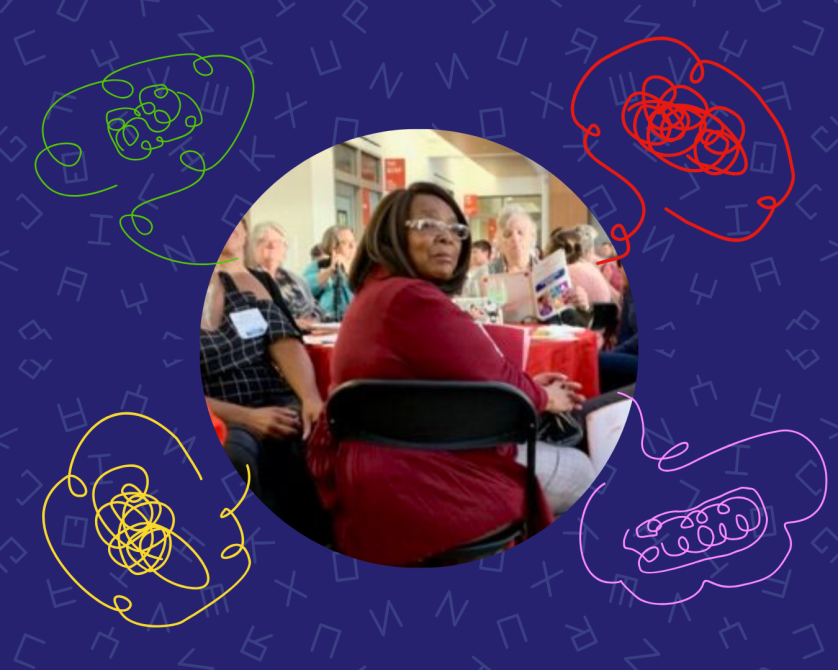
A Grandmother’s Fight for Educational Justice in Oakland
Geraldine Robinson, an African American grandmother from Oakland, is on a mission to ensure her grandchildren receive the education they deserve. Her story highlights the challenges faced by Black students with dyslexia and the systemic issues that often prevent them from getting the support they need.
Dyslexia is a language-based learning disability that affects how the brain processes written language. It can make reading, writing, and sometimes speech difficult. While many states have laws that define dyslexia and require early screening, California’s guidelines are not mandatory. This lack of clarity has left many students, especially those from low-income families and communities of color, without the resources they need to succeed.
Geraldine has been raising three of her grandchildren, and two of them have struggled with dyslexia. She noticed early signs, such as difficulty distinguishing letters and words. However, when she brought these concerns to the school, they dismissed her claims. Instead of recognizing the learning disability, the school labeled her grandson as "intellectually disabled." This misdiagnosis led to low expectations and inadequate support.
The impact of this mislabeling is significant. Research shows that even severe cases of dyslexia can be managed with the right interventions. However, the longer the delay, the harder it becomes to catch up. Geraldine’s grandchildren fell further behind, and the school system failed to provide the necessary tools to help them.
The Role of Advocacy and Education
Cheryl Theis, an education advocate with the Disability Rights Education & Defense Fund, has been instrumental in helping Geraldine navigate the complex educational system. She emphasized the importance of understanding the legal rights of parents and guardians. Cheryl pointed out that the evaluations conducted by the school district were flawed, with some psychologists relying on non-scientific sources to determine whether a student had dyslexia.
This lack of proper evaluation and training has created a gap in the system. Many educators are not equipped to identify or address dyslexia, leading to misdiagnoses and ineffective teaching methods. For Black students, this issue is compounded by racial biases that often result in lower expectations and fewer resources.
Megan Potente, an educational therapist and co-state director of Decoding Dyslexia CA, shared insights into what it means to live with dyslexia. Through a simulation exercise, she demonstrated how individuals with dyslexia struggle to connect letters with their sounds, making reading and writing challenging. This experience highlighted the importance of structured literacy, a teaching method that explicitly teaches phonics and word recognition.
Systemic Barriers and Racial Disparities
Kareem Weaver, a member of the Oakland NAACP Education Committee, discussed the broader implications of these issues. He noted that Black and brown students are disproportionately labeled as "intellectually disabled" and often miss out on the support they need. This disparity is rooted in both an expectation gap and a resource gap.
The expectation gap refers to the tendency of educators to overlook learning disabilities in students of color, while the resource gap highlights the lack of access to quality education and support services for low-income families. These gaps create a cycle where students are not given the tools they need to succeed, leading to long-term consequences.
The Impact of Inaction
Geraldine’s fight has not been easy. Despite her efforts, her grandchildren continued to fall behind. However, after years of advocacy, the Oakland Unified School District finally agreed to conduct independent evaluations. The results confirmed that both children had dyslexia, and neither met the criteria for intellectual disability.
This breakthrough allowed the district to move the children to a new school where they could access specialized support. Geraldine reported that her grandson began to gain confidence and make academic progress. However, the road to recovery is still long, and the challenges continue.
The Broader Implications
The situation in Oakland reflects a larger national problem. Studies show that students with dyslexia who do not receive early intervention are more likely to face academic struggles and, in some cases, end up in the criminal justice system. This correlation underscores the urgent need for better support systems and more effective teaching methods.
Legislation introduced in 2021 aims to improve early screening for dyslexia across California. However, addressing the needs of older students who are already behind remains a challenge. The ongoing pandemic has further complicated matters, with many students losing ground due to remote learning.
Geraldine continues to fight for her grandchildren, pushing the school district to provide the resources they need. While progress has been made, the journey is far from over. Her story serves as a reminder of the importance of advocacy, education, and systemic change in ensuring that all students, regardless of race or socioeconomic status, have the opportunity to succeed.